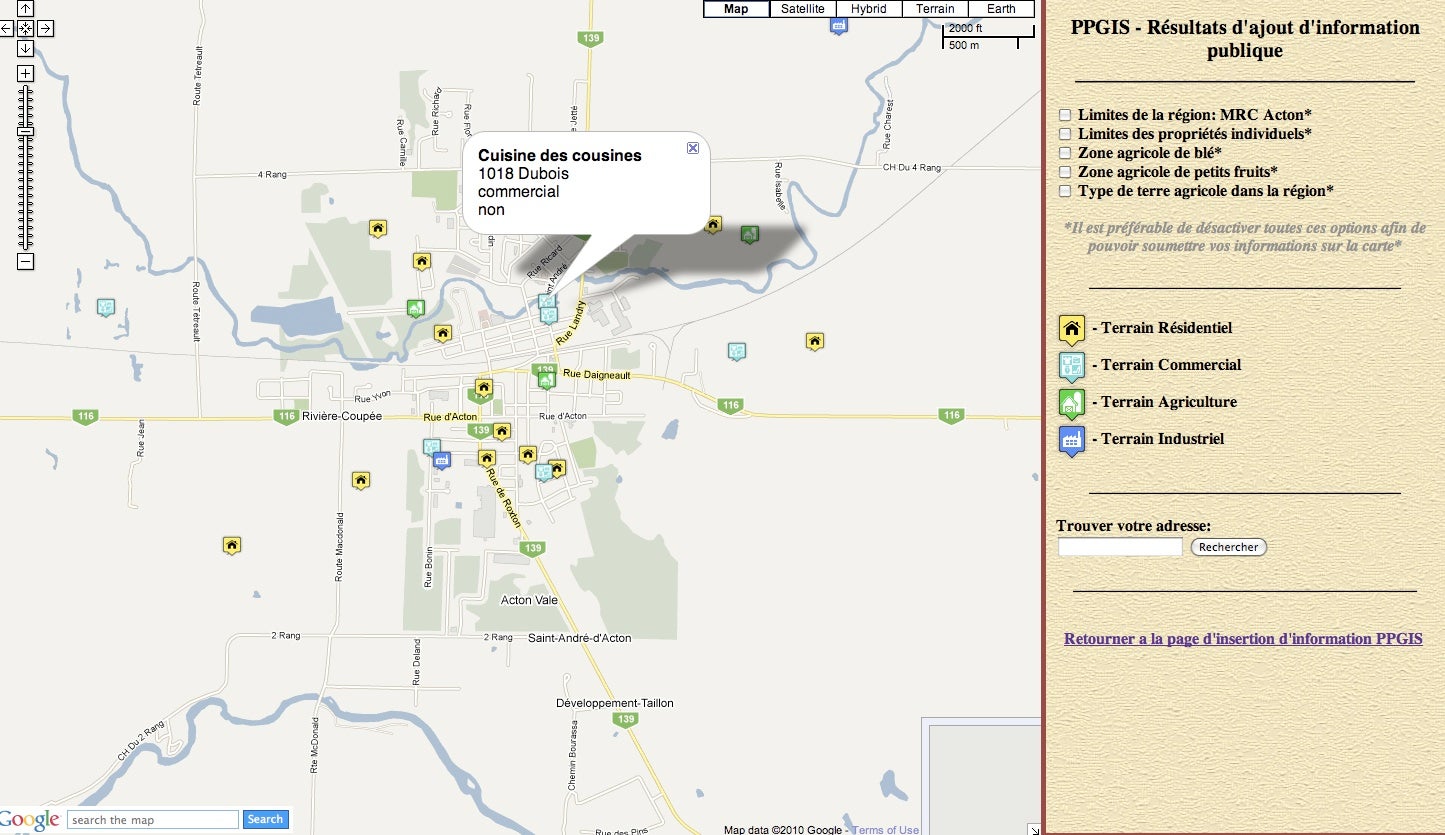A recent post on the Quebec government GéoInfo site gives a good general outline of my current project investigating the use of Geoweb technologies within community development in the region of Acton, Quebec. The article is in French, but for you non French speakers, it describes the recent interest in using geospatial Web 2.0 platforms, such as Google Maps as a way to increase community participation within economic development. The region of Acton, located in the Monteregie between Montreal and Quebec City, is a perfect setting for this project, with many complex and often competing issues, such as agricultural diversification, tourism development, water management and quality, and negotiating the impact of stringent government land use regulations. This is an area that is both unique in its outward looking activities (see the excellent economic development web site), and also typical of many regions in Quebec and Canada that are struggling with rapid economic, social, and environmental challenges.

For this project we are liberating small amounts of government geospatial data and providing this data and tools to community members within an economic development context. This process will serve as a pilot project for other regions of Quebec to determine the benefits of the Geoweb for increasing community participation in decision-making. How does the Geoweb enhance or constrain the ability of citizens to interact with their elected and non-elected representatives? What volunteered geographic information can citizens contribute to better inform the decision-making process? How can citizens use the Geoweb to contest the “official” government perspective? These are all questions that support research in what is often termed Government 2.0, a dramatic re-imaging of how citizen and government interact.
This research is supported by grants from a variety of Quebec government departments, but most centrally by the Appui au passage à la société de l’information (APSI) program funded by the Quebec Ministry of Governmental Services (MSG). I am very excited to be playing a key role in this project as primary investigator and look forward to posting research findings and progress on this blog.